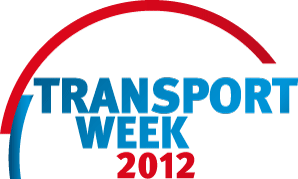Press Center
Development of electric transport calls for systemic support from the state, society and the business community
The instruments for promoting electric vehicles on the Russian market, the choice between electric and hybrid vehicles, the environmental features of electric vehicles and measures of state support for introducing them were discussed by the round table on the Electric Vehicle Market in Russia: Economic and Infrastructure Challenges held as part of the Transport of Russia IV International Forum.
Russian Deputy Transport Minister Nikolai Asaul said that practice has shown that it will be quite difficult to introduce electric vehicles without support from the state and pooling of the efforts of the public, carriers, and the scientific community. In his opinion, the main problems in expanding use of electric vehicles are the need to produce batteries for them, develop new heavy-duty batteries for harsh climates and organise a wide network of charging and battery trade-in stations.
Nikolai Asaul believes that, to stimulate buyer interest in electric vehicles, a number of legislative acts will have to be passed, including a cut in the tax on electric vehicles, free parking, benefits and subsidies when purchasing electric vehicles and introducing leasing and rent schemes for battery replacement.
Some progress in this field may already be reported. In August 2012, the Government of the Stavropol Territory and OAO AVTOVAZ signed an agreement to implement an Electric Vehicle programme, whereby AVTOVAZ is to supply 100 electric taxis for the cities in the Kavkazskie Mineralnye Vody area in the first half of 2013.
In 2011, the Moscow Unified Electricity Distribution Network Company launched the MOESK-EV project for setting up a network of charging stations in Moscow and the Moscow Region.
Andrey Veselkov, an expert with the Russian Automobile Federation, said that the measures taken so far were not sufficient and that the updated Transport Strategy should include a “missing link,” i.e., massive development of new types of transport such as electric vehicles.
Leonid Lipsits, head of the Ministry of Transport Department of State Policy in the Field of Automobile and Urban Passenger Transport, believes that electric vehicles could be efficient over short distances, for example in servicing parks, natural reserves, medical and retail centres. In this case, the problems of charging devices, special parking space and service can quickly be resolved. Introduction of long-distance electric vehicles calls, in his opinion, for ground-breaking capital-intensive solutions.
Maxim Osorin, General Director of Revolta, which exhibited specimens of successful electric vehicles at the Forum, sited arguments in favour of introducing electric vehicles on a regional scale. If Kazan’s 1561 buses are replaced with electric ones, the environmental effect would far outweigh the hypothetical withdrawal from the roads of all the city’s 300,000 cars with internal combustion engines.
Nikolai Asaul noted that the projects in the field of electric transport were not coordinated. He proposed combining efforts and setting up an interagency working group to bring in federal executive bodies, the regions, research institutes, non-governmental organisations and the business community.
Information support:
Maria Rudneva
PR Director, Business Dialogue LLC
Tel: +7 (495) 988–28–01 (ext. 70406)
Mob.: +7 (915) 354–81–42
mr@bd-event.ru


